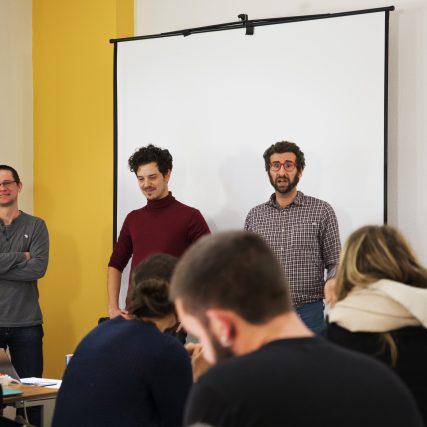Our work with CSOs aims to build stronger capacity for civil society action on asset recovery. We provide support to NGOs, especially in the Global South, to work on cases of asset recovery and the systemic causes of public asset theft. We also support cross border collaboration and provide support on security challenges.
Background
Lack of capacity is still the major issue for greater involvement of civil society organisations in engaging on asset recovery, particularly those from the Global South for whom a major case may be the first time they work on the topic. While more organisations have become involved in the issue in the last four years, numbers are still too few relative to the size of the issue. There are also large knowledge gaps in several civic actors, particularly in understanding how and when to advocate for government action on individual cases and in how to use asset recovery for systemic change.

Recent have seen civil society organisations come together for the Global South Asset Recovery Forum, the Global Forum for Asset Recovery and other international conferences and events, as well as part of case-specific advocacy groups. It has also seen us lead a coordinated effort to develop CSO Principles.
Despite this, there are still barriers to cooperation between civil society organisations, where there is still a big over-representation of civil society from financial centres in events and in coordination groups. There are also still too often CSOs working on the same case from two different jurisdictions without cooperating with each other, potentially undermining any gains they could make by acting cooperatively.
What we’re doing
Our work with CSOs includes: capacity building in the Global South for NGOs that need it, support for cross-border strategizing, advocacy and campaigns on cases and on our Global Priorities and building stronger links across actors working on asset recovery to enable more effective prosecution and recovery. A priority of this work is on using asset recovery to transform governance in the countries of origin and destination.
We are also supporting activists to improve their when working on this topic, supporting civil society actors to build their networks through meetings and events, and expanding our databases of engaged actors and individuals.
Current projects
This project builds on our previous work around sanctions, new tools and civil society engagement undertaken in our previous project: Asset recovery for transformative change. It aims to strengthen transnational civil society collaboration on asset recovery and build a more coherent voice amongst civil society at the global, regional and national levels, and increase the application and enforcement of international sanctions as a tool to combat kleptocracy and advance anti-corruption investigations and asset recovery based off these sanctions.
Improving asset recovery frameworks in Kenya and East and Southern Africa
Building on Phase I and II of our Supporting CSOs civil society in East and Southern Africa to tackle illicit financial flows project, our aim is to increase the efficiency and transparency of asset recovery frameworks in Kenya, strengthen network and mutual learning opportunities of CSOs in East and Southern Africa to engage with asset recovery, and increase the engagement of CSOs in Eastern and Southern Africa with regional anti-corruption and asset recovery bodies, tools and networks.
Recently completed projects
Asset recovery for transformative change (2021-2023)
This project sought to a) Develop a deeper, evidence-based understanding of tools being introduced to address cross-border kleptocracy, expand our Sanctions Watch website to other jurisdictions implementing sanctions for corruption: the US, UK, Switzerland, and Canada, strategically support civil society in Kenya, Mexico, Moldova, Mozambique, Brazil to develop their asset recovery work, use ongoing cases and new tools for transformative change, and begin new engagements in Angola and Brazil, and convene the first Global South CSO forum on asset recovery to discuss experiences, priorities, and improve joint South-South and South-North work on systemic reform.
This project undertook an assessment of five countries in East and Southern Africa that show promise for civil society organisations to have a stronger voice in the asset recovery process and in countering IFFs, but where capacity gaps exist and where networks are lacking. It aimed to identify strengths, weaknesses, operational frameworks, and recommendations on collaboration opportunities of civil society, identify advocacy opportunities, recommendations, and needs for reform in combating IFFs and promoting asset recovery in the region and specifically in the five countries, and build plans to engage further with identified civil society organisations. In phase II of the project we developed research and tools to support civil society engagement.
